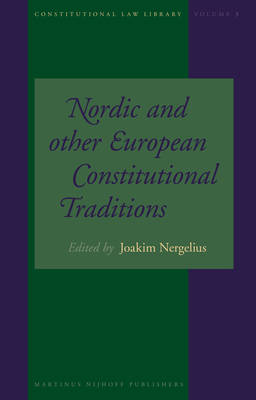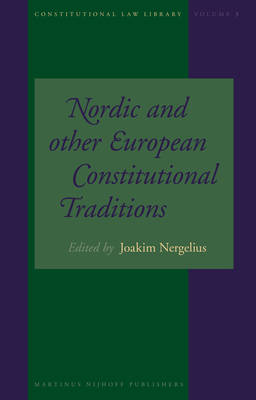
- Afhalen na 1 uur in een winkel met voorraad
- Gratis thuislevering in België vanaf € 30
- Ruim aanbod met 7 miljoen producten
- Afhalen na 1 uur in een winkel met voorraad
- Gratis thuislevering in België vanaf € 30
- Ruim aanbod met 7 miljoen producten
Zoeken
Nordic and Other European Constitutional Traditions
€ 348,45
+ 696 punten
Omschrijving
In the complicated legal and political situation that reigns in Europe at the moment, characterized not at least by the uncertainty of what happens with the proposed EU constitution after negative results in the French and Dutch referendums in 2005, it has become increasingly important to analyse the EU constitutional frameworks from historical and comparative perspectives.
This book provides new insights based on perspectives from Member States such as Germany and Italy as well as the Nordic Countries. It also deals with European legal and philosophical heritage in general, as well as special issues like closer cooperation among 'Core States' and the role of the Court of Justice in recent EC law development.
It is of interest both for legal practitioners and scholars as well as students of political science and history.
This book provides new insights based on perspectives from Member States such as Germany and Italy as well as the Nordic Countries. It also deals with European legal and philosophical heritage in general, as well as special issues like closer cooperation among 'Core States' and the role of the Court of Justice in recent EC law development.
It is of interest both for legal practitioners and scholars as well as students of political science and history.
Specificaties
Betrokkenen
- Uitgeverij:
Inhoud
- Aantal bladzijden:
- 178
- Taal:
- Engels
- Reeks:
- Reeksnummer:
- nr. 3
Eigenschappen
- Productcode (EAN):
- 9789004151710
- Verschijningsdatum:
- 8/06/2006
- Uitvoering:
- Hardcover
- Formaat:
- Genaaid
- Afmetingen:
- 165 mm x 244 mm
- Gewicht:
- 485 g

Alleen bij Standaard Boekhandel
+ 696 punten op je klantenkaart van Standaard Boekhandel
Beoordelingen
We publiceren alleen reviews die voldoen aan de voorwaarden voor reviews. Bekijk onze voorwaarden voor reviews.










